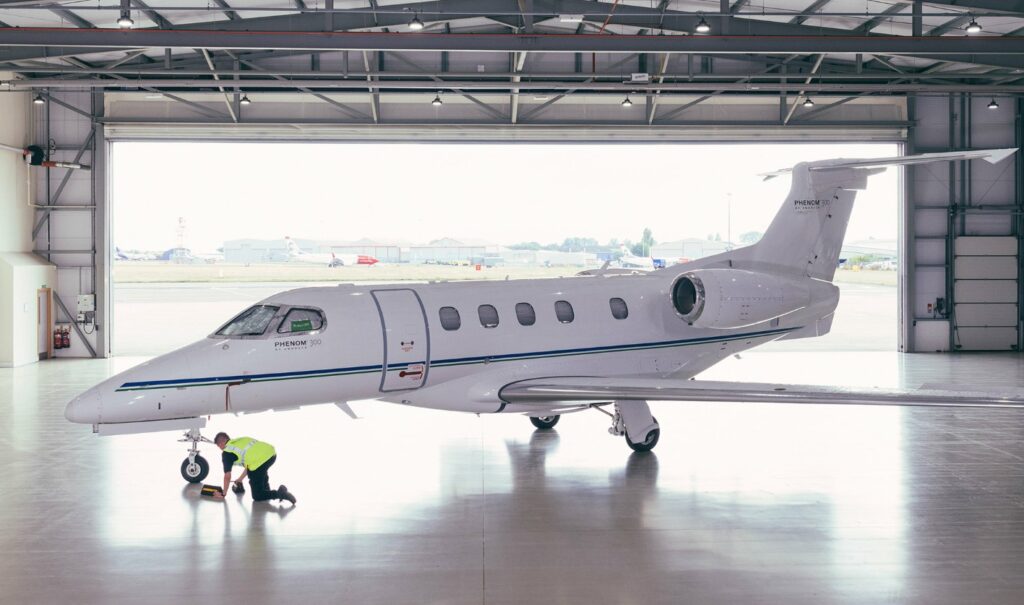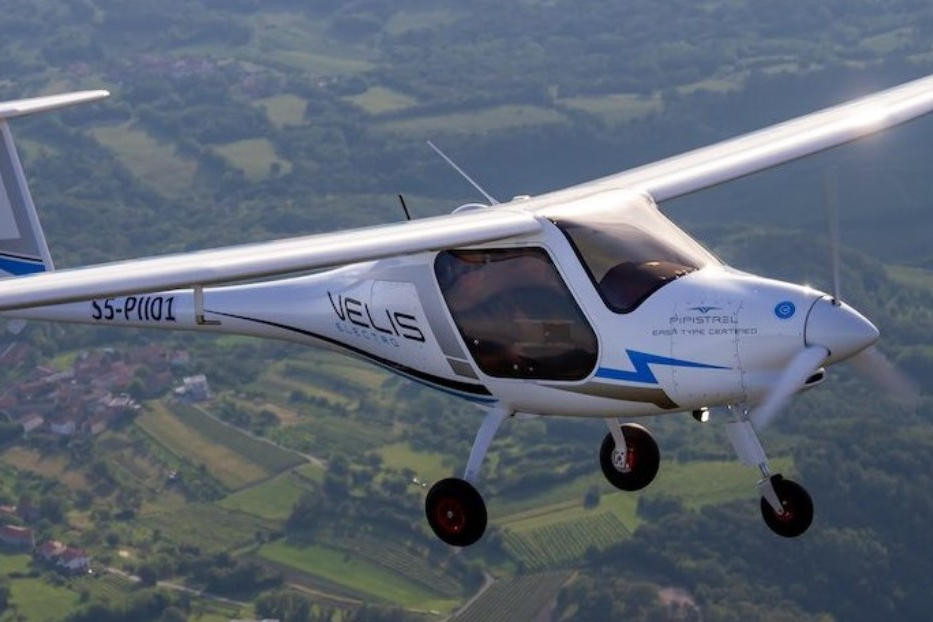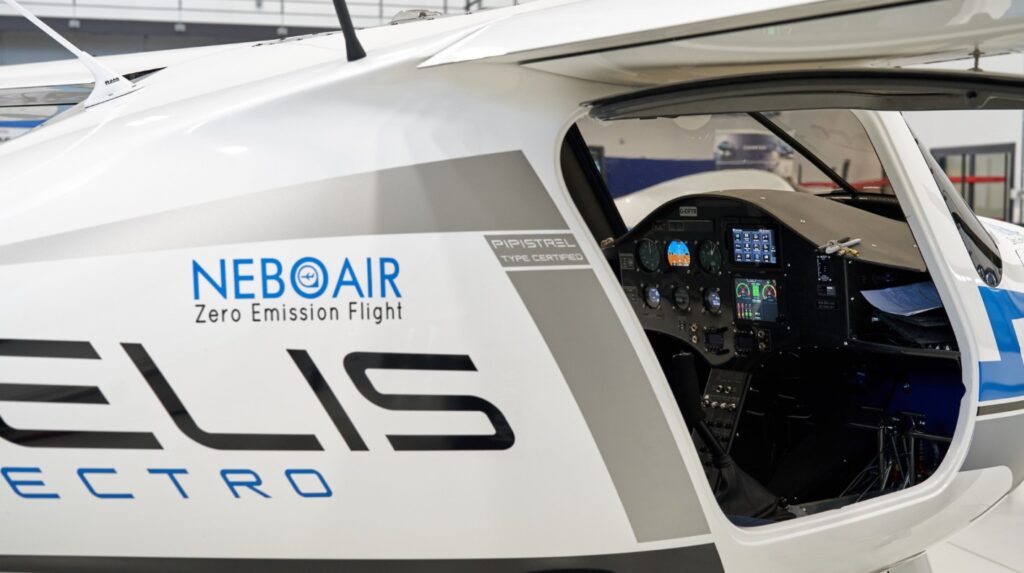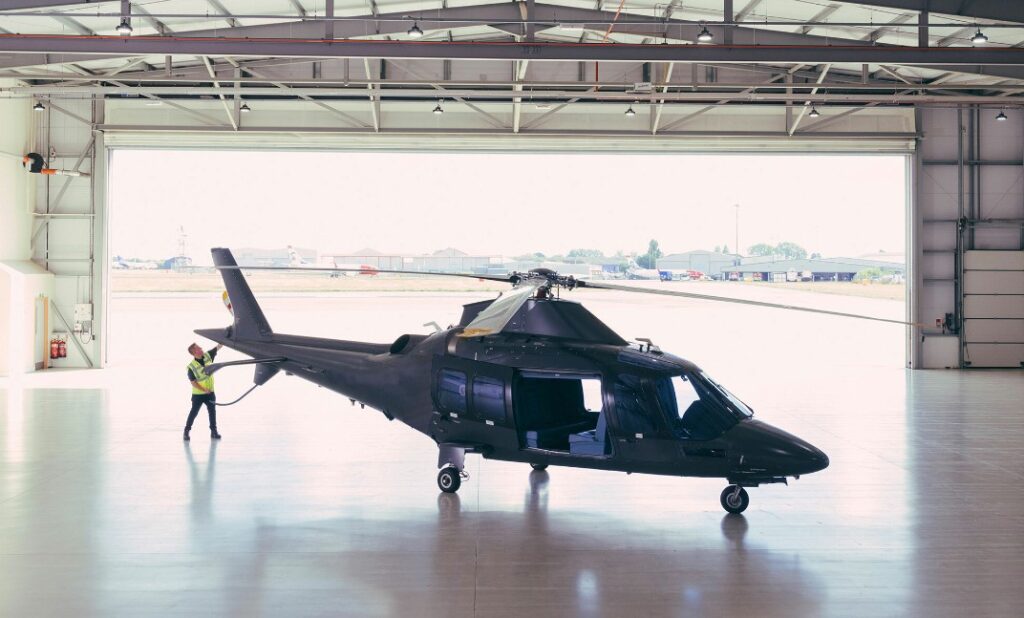Based at Norwich International Airport (NWI) in the UK, SaxonAir has become a flagbearer for promoting electric aviation through its involvement with several pioneering projects.
SaxonAir provides non-scheduled aviation services in the UK, supplying flight services using its own private helicopter and business jet fleets. For business jets owned by others, it offers management services.
The company also runs FBO (Fixed Base Operator) facilities through its two flight support facilities located at Norwich Airport, and is the airport’s preferred handling company for all non-scheduled operations.

This sector of aviation has long since been the target of environmentalists amid allegations of expediting climate change, through what is perceived by many to be the decadent use of aviation for frivolous purposes. However, SaxonAir is taking proactive steps to counter that thinking.
On November 22, 2023, SaxonAir held a special event at its headquarters called ‘Elevating Ambitions’, for a specially invited audience including AeroTime. At the event, the company launched a range of initiatives that the company hopes will raise awareness of electric flight and help promote more sustainable aviation initiatives.
For the occasion, SaxonAir unveiled its brand new Pipistrel Velis Electro two-seat light training aircraft, which has been modified by electric aviation firm NEBO Air. In doing so, the company pledged to train the pilots of tomorrow in its all-new fully certified (EASA/CAA) electric-powered aircraft, the first of its kind to gain certification to carry passengers.

Those present were invited to tour the new aircraft on the ground before watching it startup – very quietly – and perform a short demonstration flight.
Registered G-OEKO, the aircraft weighs 941 lbs (428kg), including its batteries, and can fly for up to 50 minutes (plus a reserve) before recharging. Under normal conditions, the battery can be fully recharged in approximately an hour and ten minutes at the highest power setting.
Not wishing to limit fully electric flight to those wishing to carve out a future flying career, SaxonAir is also offering the public the chance to fly in the Velis Electro. They can do so either by taking a short pleasure flight or as part of what the company calls an ‘Electrifying Experience Day.’
During these days, participants will not only fly the Velis Electro itself, but will also be able to practice their handling skills in the company’s ground-based Velis Electro simulator.

In a statement, SaxonAir states that “this groundbreaking initiative not only signifies a revolutionary leap in air training but also serves as a catalyst for inspiring and educating individuals about the boundless possibilities within the realm of electric aviation”.
The company has established an in-house flight training school dedicated to advancing low and zero-emissions pilot training pathways and is advocating for CAA approval of its pioneering e-PPL training course. This course aims to provide flight training accessible to as broad a representation of the community as possible, while providing environmentally friendly, low-emission facilities.
Embracing the possibilities offered by electric flight, over 25% of the SaxonAir workforce have already taken the opportunity to experience electric flight for themselves, generating what the company describes as “overwhelmingly positive feedback, demonstrating the remarkable nature of this technology”.
Other non-flying initiatives
The launch event was not limited to promoting the company’s approach to sustainable flight training. SaxonAir also announced the launch of a multi-faceted program to lower aviation’s impact on the environment.
Addressing the audience gathered inside SaxonAir’s spotless hangar at Norwich Airport, the company’s CEO Alex Durand set out his firm’s commitment to and vision of sustainable aviation and the future of electric aircraft.
He voiced SaxonAir’s wish to raise educational aspirations by cultivating STEM (Science, Technology, Engineering, Mathematics) projects in the wider community. One way the company seeks to achieve this aim is by partnering and investing with the not-for-profit social organization NUNCATS on the construction of their own prototype electric aircraft. SaxonAir believes that this will become the world’s first community-built electric aircraft.
Additionally, the company has developed a specifically designed program for work experience to promote accessible future aviation careers, including sustainability career pathways.
Looking further ahead, SaxonAir is dedicating efforts to advance decarbonized aviation infrastructure projects and is championing the transition to Sustainable Aviation Fuel (SAF). It has recently incorporated the use of SAF on its own executive helicopter fleet and has also invested in local initiatives to develop and produce SAF.

“It’s such an exciting time for aviation, with advancements in new technologies like hydrogen and electrification,” said Rebekah Hill, SaxonAir’s Sustainability Manager. “The industry is going to look very different in five to ten years’ time, and we’re lucky to be able to highlight the changing times, sharing the world’s first certified electric aircraft with the public, giving everyone a taste of the future of aviation.”
“SaxonAir is dedicated to embracing the possibilities of aviation. With a steadfast focus on sustainability, innovation, and education, SaxonAir is committed to shaping the future of aviation for generations to come. This launch has demonstrated our core values, that we are innovating, elevating, and navigating,” Hill added.
While many see private aviation as the antithesis to environmentally friendly air travel, SaxonAir appears to be doing its utmost to demonstrate that there can be two sides to every argument.

